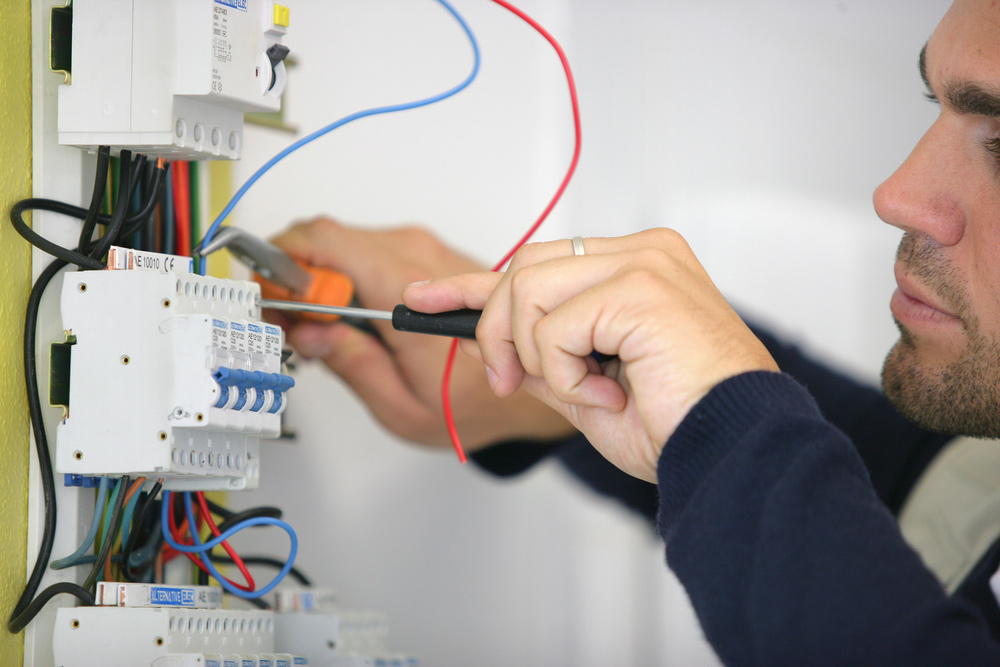A sudden power outage can turn an ordinary day into a complex challenge, bringing your routine to a sudden halt. Understanding the cause of these outages and equipping yourself with a strategy to handle them can prepare you to navigate these situations. In this guide, we’ll unfold a detailed roadmap to managing power outages so you are ready to tackle such unforeseen disruptions with practical solutions and proactive measures.
Identifying the Source of the Power Outage
When the lights go out, determining whether the power outage affects just your home or is a more widespread issue is essential. Start by checking your circuit breaker or fuse box. If a breaker has tripped or a fuse has blown, the problem might be limited to one appliance or part of your home. Unplug all devices and reset the breaker or replace the fuse to pinpoint the problematic appliance. Then, plug in the appliances one by one, checking the breaker after each. If the breaker trips again when a specific appliance is plugged in, you’ve found your culprit.
If you discover that the outage extends beyond your home, it’s likely an issue with the utility infrastructure. In such cases, contacting your utility provider can help you gather information on the scope, cause and estimated restoration time of the outage. Understanding whether the power cut is a localised or widespread problem helps set realistic expectations for the duration of the power loss.
The Initial Steps: What to Do Immediately After Losing Power
Once you’ve identified the scope of the outage, a few immediate actions can help mitigate the impact and keep you safe. These are important for effectively managing the early stages of an outage and making sure you’re ready to handle it until power is restored. Here’s what you should do right away:
- Unplug Electronics: Protect your devices from potential power surges by unplugging them or turning off power strips.
- Conserve Battery Life on Mobile Devices: Limit the use of smartphones and tablets to conserve battery life, ensuring you have access to communication and emergency alerts during the outage.
- Keep Refrigerators and Freezers Closed: Minimise the number of times you open fridge or freezer doors to preserve food.
- Gather Essentials: Assemble flashlights, batteries, water and snacks in an easily accessible location.
When to Call an Emergency Electrician: Recognising the Signs
Recognising the signs that require professional intervention is crucial to prevent further damage to your electrical system and ensure your safety. If you encounter any of the following situations, it’s imperative to call reliable electricians right away:
Persistent Power Outages
If your power goes out frequently without an apparent reason, like bad weather or known electrical work in the area, it could indicate a serious issue with your home’s electrical system.
Signs of Electrical Damage
Visible signs of damage, such as sparks, smoke or unusual noises from your electrical panel, outlets or switches, often indicate that you need immediate professional help.
Circuit Breaker Issues
If a circuit breaker trips repeatedly, refuses to reset or feels hot, it requires the attention of an electrician to prevent potential electrical fires.
After a Major Storm
Following severe weather, especially if there’s visible damage to your property or the electrical grid, an inspection by a professional can ensure your home’s electrical system is safe and functional.
Electricians can help you effectively manage power outages and protect your home and family.
Safety Measures During a Power Outage: Keeping Your Home Safe
The sudden loss of power can lead to a heightened risk of accidents, injuries or even property damage. It’s essential to have a set of safety measures in place tailored to navigate these dark times effectively. One fundamental rule is to avoid using candles as a light source whenever possible—the risk of fire is significantly increased when open flames are involved. Instead, opt for battery-operated flashlights.
For those with medical equipment that requires electricity, having a backup power source or a plan to relocate to a place with power is crucial. Furthermore, all family members should know how to manually open electric garage doors or gates, ensuring everyone can exit the property safely in an emergency. By adopting these safety measures, you can protect your home and family.
Ready to Respond: Reach Out to Us for Assistance
In conclusion, while power outages can be a nuisance, being prepared and knowing how to respond can help mitigate their impact. For any electrical issues, it’s crucial to seek professional help. If you ever face an emergency situation like a power outage, remember that our electricians at Oceanside Services are here for you, 24/7. We are equipped to handle any electrical emergency, ensuring your home is safe and your power is restored as quickly as possible. Get in touch with our emergency electricians on the Gold Coast today!



 5 Star Service
5 Star Service 






